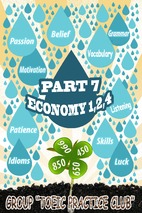32
IELTS
ESSAY
SAMPLES
Band 9
32 IELTS ESSAY SAMPLES - Band 9
1. You should spend about 40 minutes on this task.
Present a written argument to an educated reader with no specialist knowledge of the
following topic:
"Children are facing more pressures nowadays from academic, social and
commercial perspectives.
What are the causes of these pressures and what measures should be taken to reduce
these pressures?
Model Answer:
It is commonly said that today’s children are pressurized as were yesterday’s adults.
That’s true in the sense that children are facing harder and harder academic, social and
commercial challenges. It is happening simply because of the ever increasing demands
of life, from the same perspectives, on humans in general. While it is important that
children excel in their age to become successful as adults, they must be shielded from
the mounting pressure by maintaining a balance between material and psychological
growth.
As the global village becomes more and more competitive everyday, it becomes
important for us to prepare for the fight, so to speak, earlier and earlier. This is realized
by all, which triggers societies to push their juveniles during their learning stage.
The other thing that is contributing to this ever rising pressure on children is the lack
institutional opportunities, especially in developing countries. Now, more than ever,
children are having to race each other for reaching the privilege of higher education.
While healthy competition is helpful for the psycho-social development of young ones,
it is rather unhealthy when the race becomes more prominent than the objective. Of
course the objective of children competing against each other ideally is brining the best
out of themselves. But, very frequently, a child is compelled to compete for becoming
better than the other. In other words, the competition becomes a brawl rather than being
a sprint.
To stop such spiteful struggle among our young, we must first establish a sense of
camaraderie within all our developmental institutions, such as schools and colleges.
Students must contest for academic betterment, not social supremacy. Also, parents
should get proactively involved in promoting sportsmanship among learners. They must
not allow vile aggressiveness and their own vengefulness in the lives of their children.
To sustain such social reformation the government must establish ample alternatives to
the traditional route to success.
The conclusion here is simple. The children today are being put into a ‘survival-of-thefittest’ situation much earlier than they must be when they should really be trying to do
their best. Such untimely loss of innocence is only going to make civilization more
antagonistic. Therefore we must ensure that personal development may be ushered in
harmony and not in vile rivalry.
2. You should spend about 40 minutes on this task.
Present a written argument to an educated reader with no specialist knowledge of the
following topic:
"Mothers play key roles in the upbringing of children. But in the recent times both
parents are getting busy with professional life. Who in your opinion should take the
responsibility of child care now?" Give your opinion in no less than 250 words.
Model Answer:
There’s no denying how important a role the mother plays in the upbringing of her
children. But torn by modern economics, mothers are leaving home for professional
practice, raising the question “who now takes care of the children?” In my belief, though,
all efforts to replace the proverbial mother are destined to be futile.
Observing Nature, scientifically or other wise, tells us that being a mother, if it were a
social role, is ideally possible by the child bearing female and others may only be nurses
or patrons. The physiological and psychological exclusiveness of the mother means all
the other social entities and all the greatness of science and civilization can only
supplement, and never replace, her part in the upbringing of children. Any one else
trying to don her role is simply unnatural.
But of course there is opinion in the contrary also. Modern science flaunts its age old
practice of replicating nature and natural processes. Now more than ever humans and
their society are evolving frequently against the tide of Nature, and civilization sustains
this evolution. Such evolution has also effected the socio-economic distinction of men
and women. Now in the industry women are producing as much as men do. So “women
are better off in the house” is no longer true.
While such human evolution is true and should morally be supported, going against
Mother Nature, when we’re clearly not in a position to, is immoral. Science has not yet
found a biological and psycho-social alternative for the natural mother. And while
gender equality is great, it never means fusion of the two poles of our species. I don’t
believe science never has strived to eliminate sex because it is simply impracticable. So
men and women, so uniformly productive as they recently are, don’t have to utilize their
worth in the same end of civilization.
If one person, or sex, is naturally gifted to play a special and vital role in the society, it
is her duty to thrive in it. I therefore conclude that in a child’s life its mother is
irreplaceable, and, hence, it is she who should rear her child.
3.You should spend about 40 minutes on this task.
Present a written argument to an educated reader with no specialist knowledge of the
following topic:
"By investing in tourism we can earn a lot of revenue and growth in national economy.
At the same time it destroys the local culture. What is your opinion?" Give your
opinion in no less than 250 words.
Model Answer:
Tourism is one of the biggest industries worldwide. It has grown, especially over the
last few decades, by leaps and bounds. This is happening because the global citizen now
takes even the slightest of chances to visit uncharted territory. So, all the countries are
eager to invest more and more in tourism. It has its rich rewards, but there are drawbacks
too. At the forefront of all demerits of tourism is the impact on local culture. Still, in my
opinion, such demerits cannot outweigh the benefits of the tourism industry.
In the modern age the culture of one country or society is open for all to observe and
take part in. When in coming tourists get in touch of a local culture they do not
necessarily destroy it. It is understandable that they leave a bit of their own cultural
identity in the place they have visited. But that is not destruction rather a healthy
demonstration of cultural mixing that is happening incessantly all over the world in other
ways too, e.g. international media.
On the other hand, if we miss out on the far reaching benefits of the tourism industry
being foolishly bogged down by the illusionary ghouls of cultural destruction, we are
only loosing. In reality tourism does not taint a local culture, rather it fortifies it. Tourist
visiting places do not only sight-see but want to experience the diverse heritage and
customs also. So, since destroying or transforming the local culture only makes a locality
less attractive to spectators, tourism provides ample motivation to preserve our cultural
identity.
To conclude, we must declare tourism as a boon that encourages the peoples of the world
to be themselves, not like the others, while rewarding those who have valued and
glorified their culture in terms of much needed revenue.
4.You should spend about 40 minutes on this task.
Present a written argument to an educated reader with no specialist knowledge of the
following topic:
"In light of the current socio-economic situation of the world, do you think this the
right time for wild life preservation? If yes, what are the ways and means you suggest
for this?"
Model Answer:
The present day is the age of contradictions of opinions, inventions, and actions. As if
to exemplify, the civilized man pampers the wilderness while devouring it. But this
paradox is practically inevitable since we exploit the wild for sustenance and, hence, we
must sustain it for our continued future. So, regardless of economics or societal factors,
wild life must be preserved at any and all times. We must conserve, and cohabit with,
the wild which, in fact, will preserve it in the long run.
It is true that for us to survive we must exploit the environment and all life in it. So
preservationist campaigns that suggest leaving the wilderness alone or becoming a part
of it has not been so popular and viable. A wiser approach is conservation, using the
God sent resources sparingly like fiscal savings. Being wasteful, in any facet of life, is
reproachable, and same goes for wild life. If we exploit nature only so economically that
we obtain our nourishment while keeping her so sound that she continues bearing fruit,
we will be best off, as not only us, but also generations to come will have sustained this
way. Being wasteful and destructive will only usurp the natural resources
catastrophically faster which may cause the untimely demise of all humans.
Also, if we keep the spirit of harmony and learn to cohabit with wild life, all may live.
This planet is in fact big enough for sustaining all life. So, being destructive to that
which does not fight back is foolish, especially when the non-aggressor is our sole
source.
To conclude, here, we should never be scrutinizing whether it is the right time for
preserving wild life because any time is a good time, and, practically, the only time, for
guaranteeing that nature sustains so that she withholds us and others with nurturing care.
5.You should spend about 40 minutes on this task.
Present a written argument to an educated reader with no specialist knowledge of the
following topic:
"Advertisements of toys and fast foods are obstacles to children’s physical and mental
development, and, at the same time, cause loss of time and money of parents."
Model Answer:
Today’s TV is full of commercials both for adults and children. These adverts are
supposed to attract people’s attention toward the target product. It’s certain that they
work, but, perhaps, they work a little too much on the younger viewers. I believe toy
and fast food adverts profusely affect the overall development of young ones, and, also,
harm parents in many ways.
It is known that children are not matured enough to always distinguish fiction from
reality, especially when the imaginary images are so colourful and vividly projected like
it is done in today’s media. It has been noticed and identified that fast food adverts are
making today’s children more and more inclined to adopting low-nutritional value
snacks as main food items. As result, their health has been deteriorating over all.
Toy commercials, on the other hand, affect the children on a more subtle ground. While
it is acceptable that young ones play with toys for intellectual development and for
indulging into the colourful world of imagination, it is undeniable that the over-blown
adverts tend to fuse reality and fiction. As a result, in the real world, when actual
challenges of society and academia are to be dealt with, children may lack rational
responsibility. This is of course solely the effect of toy commercials. Also, it must not
be forgotten that deserting the play ground for the playpen will and does have dire
consequences on the children physiological growth.
With children not being parallel to the established line of development, parents have to
pay for their disarraying. Because of the negative effect of toy and fast food
advertisements, parents lose substantial amounts of money simply buying objects and
food items of no concrete or nutritional value. Less obviously, because of being lesser
healthy, children these days have higher possibility of falling ill, which is a matter of
massive expenses, of money, time and serenity.
To conclude, it must be said that while commercials of toys and fast foods cannot be
stopped, they must be properly graded for ensuring harmlessness to our children and
their parents.
6.You should spend about 40 minutes on this task.
Present a written argument to an educated reader with no specialist knowledge of the
following topic:
"Adult youths are often called up for working for the development of communities.
Do you think they should work voluntarily or should they get paid? Give your opinion
in no less than 250 words."
Model Answer:
The development of communities requires the vibrant energy of young blood. There are
many volunteer programs, in most communities, where the young utilize their vigour
for the good of men. But, to ascertain the involvement of the young adult in community
development, I believe monetary incentives should be there.
It is true that one should not wait for material advantages before trying to contribute to
his society. The drive for helping others should be an integral part of one’s moral
integrity. But too often the modern man is compelled to shun that which is moral and
embrace what is beneficial materially, directly, and to himself. Aside from the weakness
of character shown in such cases, by man, often his morality succumbs to the rising need
for sustaining oneself independently. Ages ago the youth was spared from such
desperation, by the cooperative social structure of then. But now, every adult is out on
his own. So, to neutralize the economic pressure blocking the adult young from
participating in community development, the people should arrange for them monetary
incentives. That way they can sustain themselves and the community at the same time.
A more practical perspective may tell us that today’s age is really not so much
compatible with volunteering. In many developed countries, even the police force is run
profitably. And CSR of profit motivated enterprises has started replacing non-profit
philanthropy. So to expect adults, young or not, to volunteer for community
development is only cacophony amidst the modern melody of social building and
maintenance.
In the end, though, a conclusion to this argument relies on circumstantial judgement,
and balancing of individual and social interests. While money will motivate a permanent
source of energy for developing communities, youths should not wait for a cost benefit
analysis before saving a community in dire straits.
7.You should spend about 40 minutes on this task.
Present a written argument to an educated reader with no specialist knowledge of the
following topic:
"Due to so many young people dropping out from school, rate of unemployment is
going up and it affects our society in different ways. In your opinion, how can this
situation be improved?"
Model Answer:
It has long been noticed worldwide that young people, at the age of being in academic
schooling, often drop out, sometimes to get involved in wage earning, other times for
reasons not so fruitful. The blame is not of the context here. But the effect, which is
relevant to this discussion, is most often perilous to society. Such a situation should, and
can, be improved by training, employing and re-schooling those disarrayed young.
Firstly, Government should take steps to train the out of school juveniles in skills that
can easily be utilized in industrial or farming environment. That way the “drop-outs”
will contribute to their own and country’s development and not become menaces to their
society.
Secondly, public and private enterprises should take concerted measures to embed the
unschooled youths in the national, even international, workforce. Everybody, regardless
of his or her academic rapport, must be good for something, ranging from clerical desk
jobs to technical handy work.
But, most importantly, in my opinion, the “dropped-out” juveniles must be given
opportunities to get back on track. This may include free to access entrance exams in to
different levels of institutional education. In the United States, the GED examinations
offer high school drop-outs, beyond the age of 17, entrance in to university, basing on
their aptitude scores in the GED, disregarding their otherwise track record. Even prison
inmates there get this opportunity.
A young person dropping out of school is a big enough tragedy in itself, considering the
untimely loss of a potential scholar. But this tragedy turns in to being the horror of all
lest steps are not taken to rehabilitate this youth. We may, therefore, conclude here that
the only way of improving the situation created by high school drop outs is practical
rehabilitation by industry and sympathetic consideration by institutions.
8.You should spend about 40 minutes on this task.
Present a written argument to an educated reader with no specialist knowledge of the
following topic:
"Should Government be responsible for providing pure drinking water to all or should
the people obtain their own water?"
Model Answer:
Water is life. Purity of it may sustain and impurity may perish all. In that all consuming
concept, it is necessary, and, it is commonly said that all necessities should be provided
by the government. While such popular opinion is ideally justifiable, I believe that, with
the exception of those of desert and disaster areas, governments should not be burdened
with the duty of providing drinking water, as it can very easily be done by individuals
in most areas.
Speaking generally, modern society has progressed far enough not to consider thirst as
a threat. We get bottled water delivered to our doors in many places. And tap water is
clean enough to just boil at home and drink. Small servings of drinking water are also
cheaply bought at convenience stores almost anywhere. In terms of Bangladesh, for
example, water is one of the cheapest of all home utilities. So, now, water is no problem!
There are of course those areas where all provisions for sustenance are scarce, may be
due to war or other disasters, natural or not. Those cases must be held as exceptions,
which they really are, and call for government sponsored supply of all general means
for living, e.g. food, shelter, education, clothing, pure drinking water, even portable air
conditioners, like often are supplied in USA and some wealthy middle eastern countries.
So as said, there are exceptionalities, and they should not be used to argue against
rationale, that is, distributing drinking water in times of peace is too trivial a matter for
the government, or a bureau of it, to be occupied with.
We can, therefore, conclude that drinking water, in the contemporary perspective, is
available enough to be left as responsibility on the shoulder of the governed, not the
government, except the situations that go beyond all generalities.
9.You should spend about 40 minutes on this task.
Present a written argument to an educated reader with no specialist knowledge of the
following topic:
"Some people think that hard work and determination are the keys to success in life.
Some, on the other hand, think that there are other factors behind a successful life.
Give your opinion."
Model Answer:
To succeed in life the need for hard work and determination is undeniable. Of course
the definition of success there is substantial improvement of one’s professional,
financial, intellectual, or spiritual status. Often it appears that there had been other
catalysts for success, like opportunity and guidance. But my belief is that, with enough
perseverance and diligence all variables in the way of becoming successful may be
neutralized.
A person, in education, career or soul searching, faces many hurdles, some barely
discomforting and others disarming. That is surely beyond argument. Hence there
should not be disagreements in saying, hurdles are called such because they require us
to put in more effort than usual. The greater the hurdle is, the more effort we must put
in. Drawing from this, success and the hard work – determination factor are positively
related to each other. It is as irrefutable as mathematics.
A contradictory point of view may project that the formulaic relationship between hard
work – determination and achievement may be engineered by the opportunity and/or
guidance one might get. That is reasonably agreeable. But such secondary factors can
never become the primary. For example, it is commonly said that George W. Bush, the
Senior, has been far more prolific, than his son is, in his military, bureaucratic, and
political career, while it is evident that he had to diligently work his way up the ladder,
from being a soldier to the fabled US White House. Mr. Bush Junior, on the other hand,
had most of his way to the oval office already paved by the grace of his patron. Then it
may be said that Bush Sr. worked harder than Bush Jr. did, and we all are spectators of
their discriminated rapport, as humans and as leaders.
Therefore, I conclude here that, though some secondary factors sometimes may
influence the dynamics of success, achievement of it solely depends on hard work and
determination.
10.You should spend about 40 minutes on this task.
Present a written argument to an educated reader with no specialist knowledge of the
following topic:
"Countries become more developed due to mix of different people and their culture.
Do you agree or disagree?"
Model Answer:
In this era of globalization, few countries are left from extensive mixing of people and
their cultures. Countries are becoming mere political regions and nations, reminder of
bygone traditions. I believe this is happening clearly for the better.
The most beneficial contribution of population mixing is perhaps the complimenting of
peoples, which encounter and fuse with each other, for mutual development. When
people cross borders, they carry their ideas, knowledge and skills and let them blend
with those of others. The compound is ideally beneficial because people generally take
up and sustain what is good for them. For this blending of knowledge and ideas, today’s
world is much more convenient and harmonious than it was less than a century ago.
Enhancement of society, which is done easiest through blending of people, also has to
be stated. A country may be conservative and grow financially, but today development
is a socio-economic affair. This means that societies and countries do not develop
merely by increasing monetary wealth but must also grow through the improvement of
their people, which is done through “curing people by people.”
Detractors of such opinion say that we’re losing our cultural and national identities as
more and more exotic ideas, values and customs are being domesticated. This perhaps
does have a factual base since blending of cultures definitely modifies customs. But such
modification can hardly be called loss. Identities are made of long time traditions, which
were “grown” somewhere back in time, so the loss that some may blame population
mixing for may not be a loss at all, but possibly be the process of taking up newer
identities or augmenting the already cherished ones. It is foolish, therefore, to be critical
of mixing of people and culture, at least in this way.
Hence, I conclude that mixing of people and their cultures, despite its critics and
occasional blemishes, is taking the whole world to a better place.
11.You should spend about 40 minutes on this task.
Present a written argument to an educated reader with no specialist knowledge of the
following topic:
"It is noticeable that fast food consumption has increased substantially during the
last 10 years. Discuss its impact on environment and health."
Model Answer:
Fast food has grown in the last decade thick and fast. A good part of mom’s kitchen has
already succumbed to it. But this is taken sportingly as the fast food revolution has both
advantages and disadvantages effective on personal and environmental health as do all
other changes brought by industrialization and, more recently, globalization.
As said before, fast food is growing thick and fast. It has been embraced by people all
around the world fast, but it is thick in grease and artificial additives which already have
been proven to have occasionally terminal effects. Fast food is a profit earning consumer
product produced by the impersonal professionalism of the industry and not the personal
favor of mothers or other traditionally familial culinary experts. This means fast food
concerns itself primarily on how it will bring in more kudos, frequently bartering health
and safety in exchange of financial prospects. There are environmentally harmful
implications also resulting from the mass production of fowl and cattle, which are the
staple items in most fast foods.
On the other hand, fast food has helped lubricating the quick winding cogs of today’s
industrial civilization. It provides nourishment to the innumerable contributors of
modern economy who have little time to cease for the more time consuming domestic
dining. Also, it has done so staying within the affordability of most men. Considering
that, fast food is, at least, cost-effective, which is quite a complement in the
contemporary perspective. Yes, again, this amenity has its draw backs too, mostly
related to health of individuals, but the price to pay for this urban convenience has not
yet been proven to be dear. Hence the unstopped growth of the fast food industry as we
speak!
There are few in this world that do not have a two-faced implication of chance. It is,
therefore, acceptable that the use of fast food has substantial benefits while the abuse of
it may be harmful. One must then conclude that fast foods are here to stay, but we should
indulge in it with caution and concern for health.
12.You should spend about 40 minutes on this task.
Present a written argument to an educated reader with no specialist knowledge of the
following topic:
"When there is a rise in the standard of living, people in the cities are more benefited
than those in the rural areas. Please give your opinion on the problems arising from
this discrimination."
Model Answer:
Villages and cities have been the two complementary components of human civilization
since the beginning of it. In simple terms, villages are the basis of habitat. Everything
from commerce to culture in villages is basic. Whereas, urbanity is all about progression.
All things advanced, of life and living, are standard in urban areas. Some say such
discrepancies are unfair; others justify the difference of living standards. I equivocate
with the latter.
It is important that one understands the economic motivation of having geographically
separate cities and villages. As said before, villages are basics, and cities are the
advanced options of habitat, like product lines of a shoe brand. Such artificial
diversification is necessary to keep up with the diverse tastes and needs of people. Cities
are costly, but come with many amenities. Villages are not well-ornate but comfortably
within the affordability of most people. Also, if there was only one mode of living all
over, then people would have no higher option to look up to, which in effect acts as
motivation for personal economic development, or no safer and more affordable choice
that we can resort to in troubled times.
Aside from the economic formulae, there are social reasons for having distinct cities and
villages. Rural and urban people have identifiably different cultural identities. True that
there often are bilateral transitions of socio-cultural traits and behaviors between villages
and cities, but for thousands of years, they have never been identical. This proves the
existence of people’s choice – to have urban and rural areas in their geographically and
socio-economically separated spaces.
Living standards are rising everyday and it is felt in cities first. That is because cities are
the places of development, unlike the rural niches, which we cannot afford to experiment
with. It is true that advanced amenities are almost solely urban properties, but it is alright,
in my judgment, as long as the basic necessities are available in the villages.
13.You should spend about 40 minutes on this task.
Present a written argument to an educated reader with no specialist knowledge of the
following topic:
"People attend both work and personal calls through mobile phone anytime of the
day. What are the positive and negative effects on social and individual life?"
Model Answer:
The citizens of the global village are expected to be mobile, freely transient over space,
and always connected, wired to the world-wide communication chain anywhere anytime.
Thence, mobile phones have become part and parcel of our everyday life. Many consider
cellular phones as perfectly proper, if not essential, as a round the clock business and
personal tool, others question such unrestricted usage. All have their justifications.
The basis of mobile phone’s popularity, surely, has always been the uninterrupted scope
for being “connected.” What cell phones have given us is freedom to roam while being
within the secure bond of modern communication. The manufacturers and service
providers of mobile communication devices have enhanced the portability of
communiqué to the degree of virtual extremity. And, we, the users, have embraced this
advancement and have magnified our professional and social life to freely reach both
sides of the meridiem. Unrestricted mobile communication has enabled us to live life to
the practically fullest.
The flip side of the coin presents a different picture. While cell phones keep us connected,
they remain as the autonomous usher of intrusion, to privacy and solidarity of
individuals. It is also common, everyday, to see the decorum of distinguished
environments being violated by ringing cell phones and people talking over them. So,
mobile communication devices, which are meant to be ideally personal communication
devices, are often the means of public disturbance.
The unavoidable human tragedy is all our endeavors end in toxic byproducts. The best
innovations have all too frequently caused the worst incidents. Mobile phones are
beneficial, no doubt, but have been inarticulately used, if not abused, to the point of
attrition. Thus, the reasonable conclusion, of the argument for and against the
unrestricted usage of mobile phones, to be made is that the goodness of it is subjective
and is reflective of the likeness of the users’ intentions.
14.You should spend about 40 minutes on this task.
Present a written argument to an educated reader with no specialist knowledge of the
following topic:
"Some people prefer to help by making donations to local charities while some prefer
to donate to national & international organizations. Discuss both measures and give
your opinion."
Model Answer:
In the modern society charity has been institutionalized both locally and internationally.
Through such organizations, helping our fellow citizens has become more convenient.
Some make donations to local welfare bureaus and others to international organizations,
like Red Cross. Both may be effective, but appeal to donors in varied ways.
Locally originated charities always have the regional advantage. Being founded and
usually run by native patrons and administrators, these charities relate to the local needs
and hardships easily. So, for those who want to help the needy and distressed within
their immediate surroundings, local aid groups may seem to be the more nimble option.
But this inseparably has drawbacks also. Occurrences and accusations of irregularities
have long plagued regional aid agencies. Also, they are limited in outreach. Anyone
wanting to be more globally philanthropic will not be helped much by them.
International aid agencies, like Red Cross, UNICEF, et al, on the other hand, have the
universal edge. They operate in the war fields of Africa and shanties of India alike. So,
they have the ability to transgress the goodwill of a local patron to world wide frontiers.
But, being peregrine bodies themselves, sometimes international charities fail to relate
and appeal to local people. Also, they may fail to perceive the intricate socio-economic
ailments of a particularly exotic territory. This is no secret and often makes patrons
uncomfortable.
I have always believed that charities, both local and international, are effective and
essential, and, thence, should coexist as viable options for all who care for humanity.
Afflictions and catastrophes happen in different likes, and no single organization can be
suitable to encounter all always. Situation, at times, demands the familial empathy of
native charities, and, other times, wants the global expertise of international
organizations. It is, therefore, wise to conclude that choosing the basis of charities while
making donations is a subject that must be understood in context and will always vary
according to the unfathomable turn of time.
15.You should spend about 40 minutes on this task.
Present a written argument to an educated reader with no specialist knowledge of the
following topic:
"City Planners' new designs include setting up schools, markets, and commercial
places (offices) in different areas of the city. Do you think it will help the city
dwellers?"
Model Answer:
Cities all around the world are similar in terms of the cosmopolitan hum-bum, the
abundant machinery, and the constant reshaping of landscapes. Planners, in recent times,
have started setting up and relocating common places of public gathering, e.g. schools,
shopping malls, and offices, out of the inner-city spheres for cascading the citizens over
a wider and uncongested territory. I believe this, despite some inconvenience, is
ultimately beneficial for city dwellers.
Traffic, of humans and automobiles alike, haunt us in an otherwise unnatural urbanity,
day and night. Cities, ailing of congestion, are hard up for air. We venture out every day,
in the city streets, schools, offices, stores amidst millions others, on the prowl for
sustenance, prosperity and indulgence. So we bump along, with or without harmony,
like workers do in a termite colony, and that’s ok! But the problems rather are the clogs
that halt our lives, in office going traffic and school going ques. But urban socioeconomic does not allow us to stall, yet stall we must. This paradox is born of the
centripetal convergence of establishments in cities and will remain until and unless cities
are decentralized.
Some recoil from the prospects of relocation of city establishments looking closedmindedly at only the geographical distance. But reality moves over space that must be
measured in respect to travel time also. Due to relocation of schools, shops, and so on,
we may have to travel further, but, thanks to the evolution of modern transports, for
shorter periods of time. Hence, relegation of places of communion to more strategically
poised vicinities actually reduces the time-distance that the modern man is more
concerned about.
No development comes without compensation, and if sacrifice we must – to see better
days, then accept we should – the extra mile that we have to stride on, for becoming a
faster and more agile citizenry.
16.You should spend about 40 minutes on this task. Give reasons for your answers and
include any relevant examples from your experience. Write at least 250 words.
You have been asked to write about the following topic:
"Some people prefer to go to health clubs and gyms for health care, but some say that
walking and climbing stairs are more effective. Discuss both and give your opinion."
Model Answer:
These days people are becoming more and more health conscious, more inclined to
develop health through physical exercise. Many go to gymnasiums to work out using
machineries, while others just maintain a physically active lifestyle walking and
climbing stairs. Both ways are effective.
Going to health clubs and gyms have become very popular lately. We, as humans, like
to make occasions out of every prominent activity and distinguish physically locatable
settings to observe such rituals. For example, we go to mosques, temples, churches to
pray, highly decorated departmental stores for groceries, community centers to celebrate
unions, restaurants to eat and lounges and cafés to hang out. And there are the
overwhelmingly equipped bureaus for work. Going to gymnasiums to work out is, thus,
a very consistent behavior. Apart from its spatial identity a health club has its intrinsic
benefits also. The equipments and the guided environment there make exercising easier,
and, hence, the recent popularity.
Some, on the other hand, find it impractical to make the time and go to a separate place
to have physical exercise, and are bent on maintaining health by being physically active,
not being conveniently lazy. They walk over to shortly distant places, rather than hiring
transports, and briskly climb the staircase sometimes avoiding the elevator. This, in itself,
has great advantages too. It, firstly, saves the additional time and expenditure needed to
go to gyms. And, since this, once habituated, is barely distinguishable as a separate
activity, we persevere at it even without knowing.
In my opinion, physical activity, integrated within the regular lifestyle is better than
making a separate occasion out of it. Obviously, I am encouraged by the financial
advantage of it. But, moreover, I believe in maintaining my health and hygiene in private,
on my own, and within my everyday happenings.
In sum, going to health clubs and having physical activities in regular life, are both
popular and have their own effectiveness. I believe the choice between the two is a
matter of personal taste and affordability rather than comparative advantage.
17.You should spend about 40 minutes on this task.
Present a written argument to an educated reader with no specialist knowledge of the
following topic:
"Nowadays it is noticed that cultural mixing is reflected within local cultural practices.
Do you think it is good for our society?"
Model Answer:
In this era of globalization, boundaries – political, geographical, cultural – are being
removed as peoples blend and persons share, with each other, the very values that once
segregated them. Cultural mixing has begun tearing down all the ethnical and racial
pigeonholes and move us closer, by the day, towards one universal race of humans. Like
all else, even this has its occasional downsides, which, when put in comparison with the
upsides, are negligible.
Firstly, we have to consider that cultural mixing is perhaps the only non-coercive way
to move global humanity towards ideal equality, a belief sought for by all the great
persons, and political and religious ideologies. While many have struggled throughout
human history to uproot tyranny, oppression, bigotry and segregation, their paths have
been tainted by the blood of the bold and tears of the beautiful. True that we, through
our ravaging revolutions, have progressed, but at a cost that undoubtedly has been dear.
Cultural mixing, on the other hand, is the benedictory prophet, who ushers the great
communion of all men in empathy, leaving behind all ethos, and he comes only in peace.
Yet, some conservatives argue that free-mixing of cultural values degrade people’s
sense of morality. They must be conveniently forgetful of all the immoralities, in the
name of conservation, that evidently have tarnished human history. Although, it is
undeniable that cultural mixing, like any other progressive enterprise, has coincided with
social unpleasantries, for example declining stability among families in the third world
countries, the blame has not yet been rationally put. And, of course, there are many other
socio-economic controllers such as wage-earning, and individualism that may very well
be responsible for today’s social ills.
In sum, we must not be closed-minded to the global brethren cultures, because, only by
doing this we may, one day, realize the ever-cherished dreamland of universal humanity,
where “… all the people, sharing the world in peace” will not be only a thing of
imagination.
18.You should spend about 40 minutes on this task. You should write at least 250 words.
Present a written argument to an educated reader with no specialist knowledge of the
following topic:
"Changing jobs and residences frequently is a very common scenario nowadays. Do
you believe that this is good for one's future?"
Model Answer:
“Change” seems to be the mode these days, in politics, economics, society, even
personal lives. Conforming to the global tide of change, we shift our residences,
preferably moving from worse to better domiciles, and, more importantly, switch jobs
for better pay and benefits. Some argue that keeping a volatile lifestyle endangers our
personal safety and social stability. I also believe that, despite the need for it only
whenever the end result is fruitful, frequently forced change ails us more rather than
helping.
It is important that the idea of development is carefully distinguished from all arbitrary
change. What is noticeable recently that the craze for abolishing all that is old for any
that is new is rampant. In the job market, also, employees seem to be more restless, less
patient of the due process of career progression. They fail, commonly, to appreciate the
bureaucratic inertia that serves as a professional’s “9 lives” and misunderstand it as
obstacle toward promotion. As a result employers are also becoming cynical of
employees’ commitment. This, as a whole, destabilizes the job market, which is
favorable neither for the enterprise nor for the entrepreneurs and staffs.
We are also facing this lack of commitment in residential communities. Before, a family
would move in to a neighborhood, socialize and localize themselves intimately for years,
sometimes generations, and develop a sense of mutual belongingness with the locale.
Now, because of rampant migration, from one locality to another, people are becoming
strangers in their own alley. As a result, community support is diminishing every day,
especially in urban areas, and families are transforming to estranged groups of people
in an otherwise crowded landscape.
Change is good, as long as it is circumspect. Change is bad, whenever it is done just for
the sake of it. Therefore, we must check the frequency of change, while keeping our
minds open, and remember that all that we may perceive as old and used are also all that
we have to lose, which may very well be all that we have.
19.You should spend about 40 minutes on this task. You should write at least 250 words.
Present a written argument to an educated reader with no specialist knowledge of the
following topic:
"World history suggests that violence and and conflict were more evident under male
leadership that under female leadership. So, for peace to prevail, female leadership
can be considered as a better option that male leadership."
Model Answer:
The history of humans has been violence and conflict stricken since the beginning of
time. As far as we can look back in time we see wars, power struggles and revolutions.
We also see that society has always been predominantly male dominated, with leaders
and rulers mainly being men. It is, hence, easy to blame the ruler and put the
responsibility of atrocities on the shoulders of men. But a deeper perspective always
reveals to historians that conflict is a generic tendency of humans. So peace being
disturbed is not the liability of men only, but humans in general, and a power shift, from
men to women, is destined to be futile in prevailing peace.
Most of the women who are known to be great till date, e.g. Queen Isabella of Spain,
Queens Marry, a.k.a. Bloody Marry, Victoria, and Elizabeth of Britain, all have ruled
over vast spectrums of power. And they often have done so ruthlessly, achieving goals
with an iron hand. They have waged wars that are barely comparable to only few of
those devised by men. These women are not anomalies of history, but examples from
numerous others, who went beyond the boundaries of gender in the path of prevailing
in power while expending peace whenever they deemed it to be expendable.
The two greatest wars of modern history, World Wars I & II, have taught us that wars
are impersonal. Race, religion, nationality, sex are only pretense to the universally
human lust for power. It is true that during both the global conflicts men were in the
rulers’ thrones. But it will be foolish to say that Margaret Thatcher, the famed Iron Lady
who spared no rod against a minnow enemy in the war of Falkland, would be more
peacefully diplomatic than how the greats Winston Churchill and Franklyn D. Roosevelt
had been tackling the Axis of Hitler.
The gender issue is only a determinant in the battle of the sexes, not the battles among
nations and peoples. It is therefore impertinent, if not irrational, to conclude that world
conflicts result from the rule of a particular gender and the finer sex would do a better
job at prevailing peace if selectively put at the helm of human nations
- Xem thêm -




















